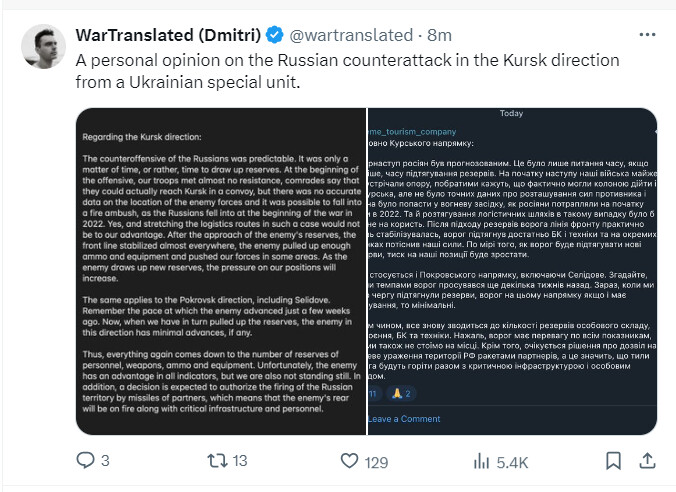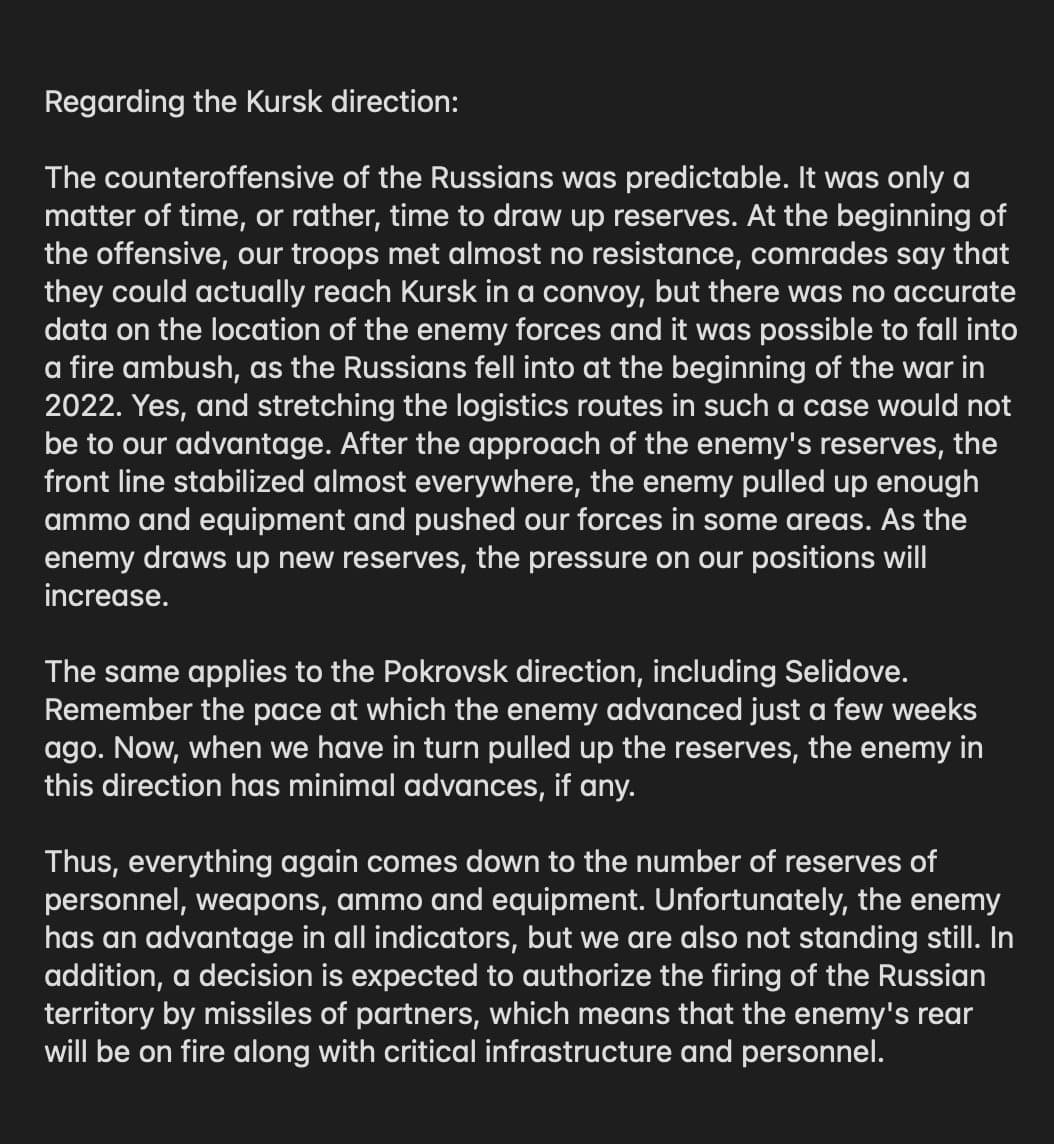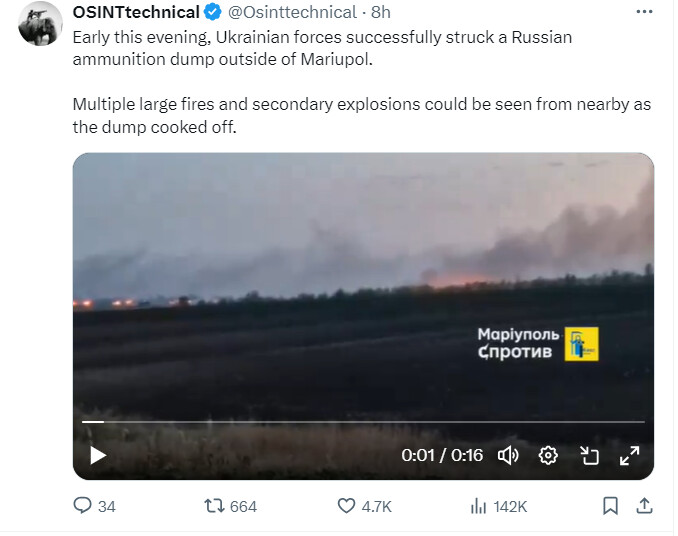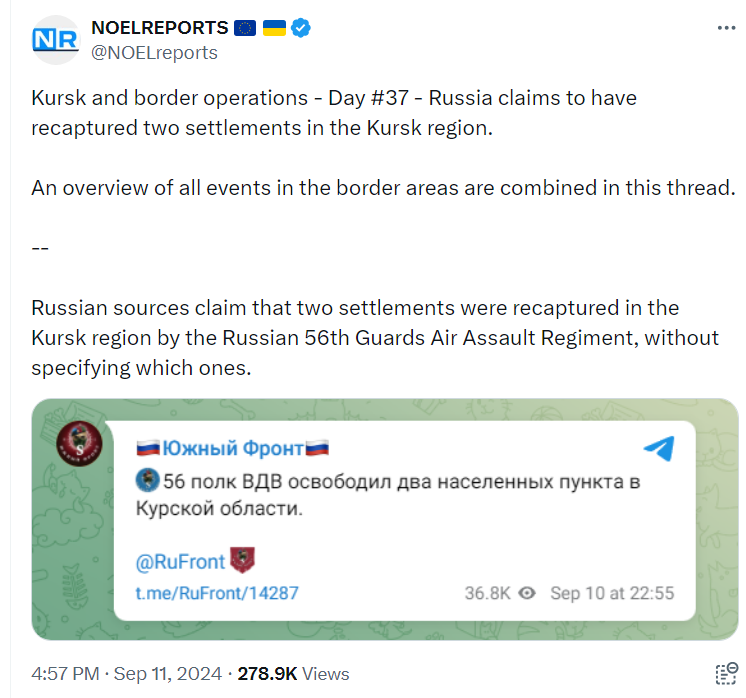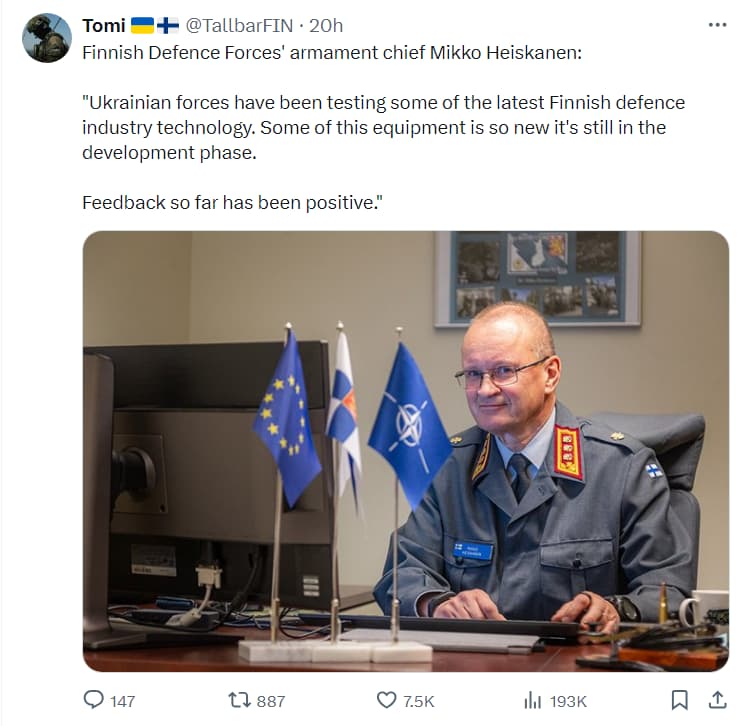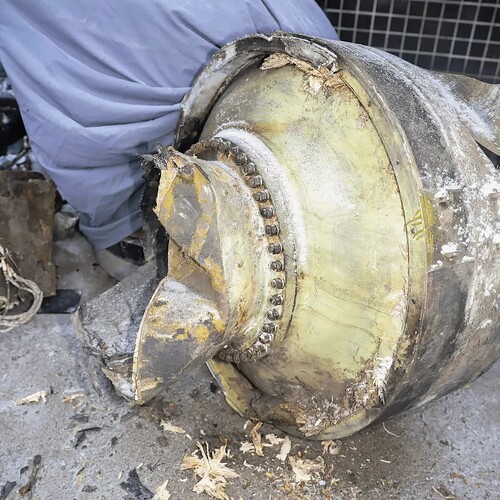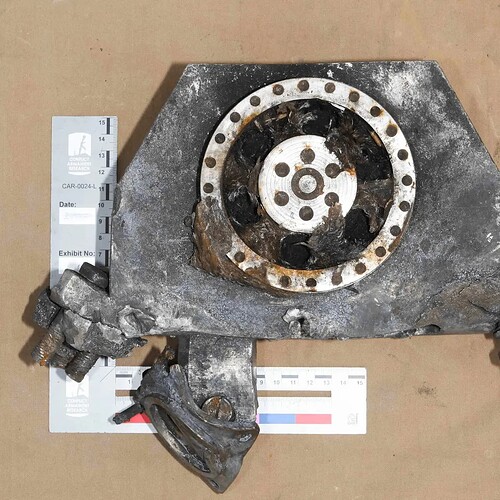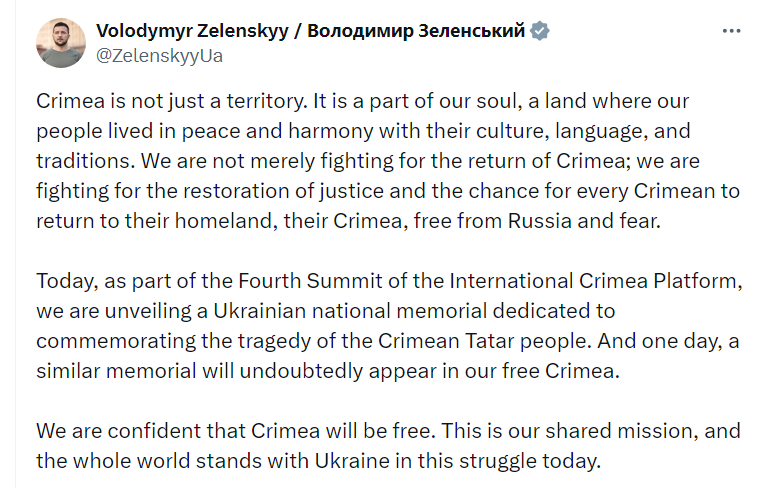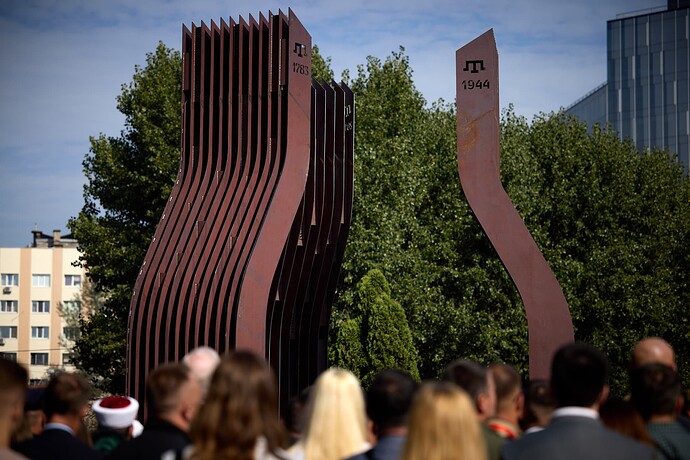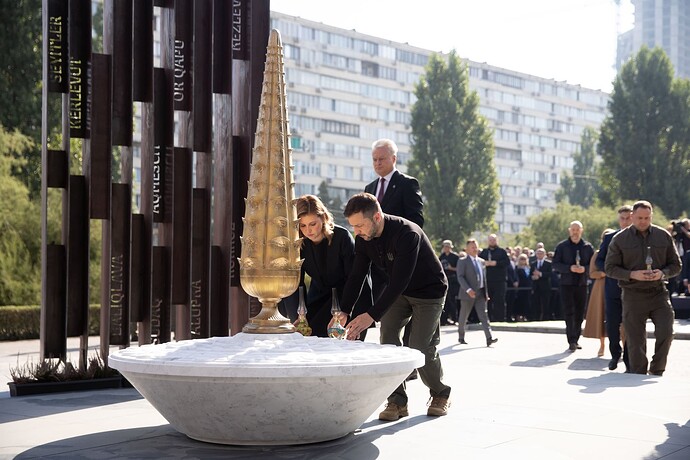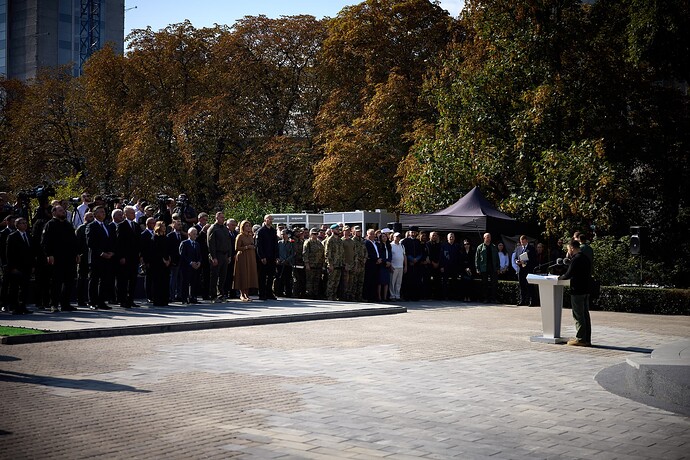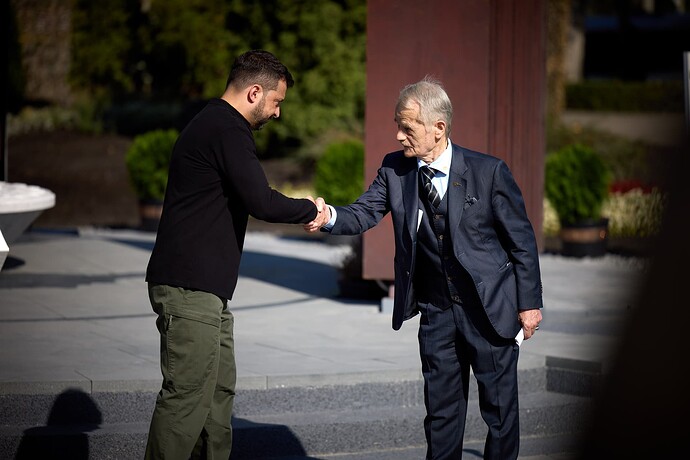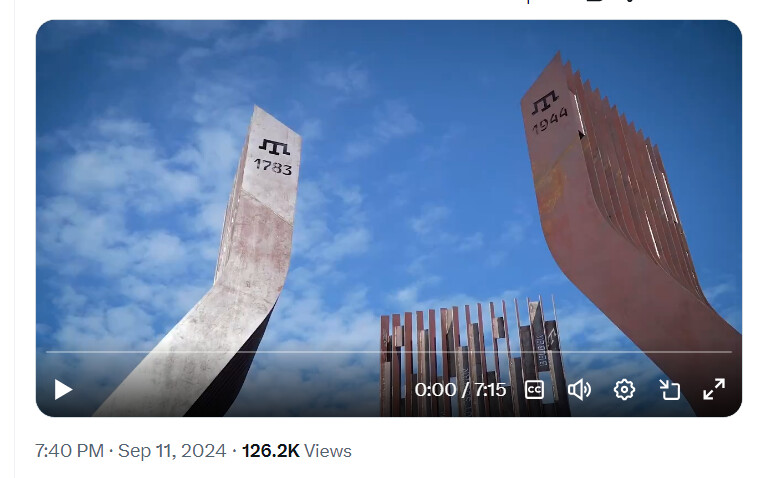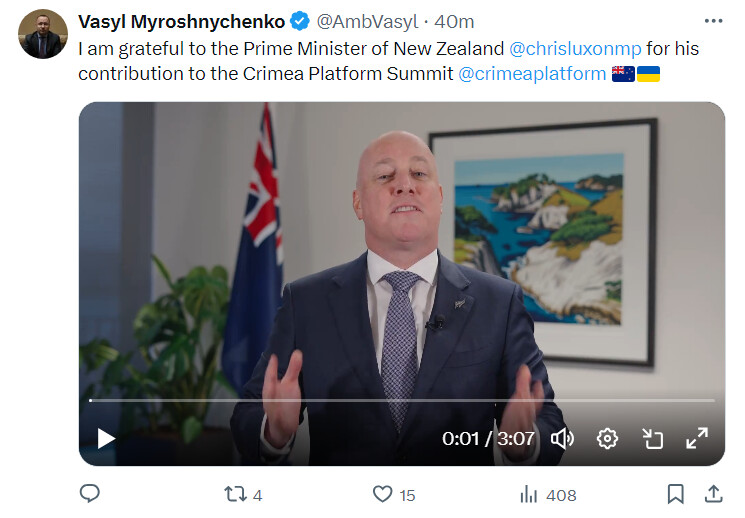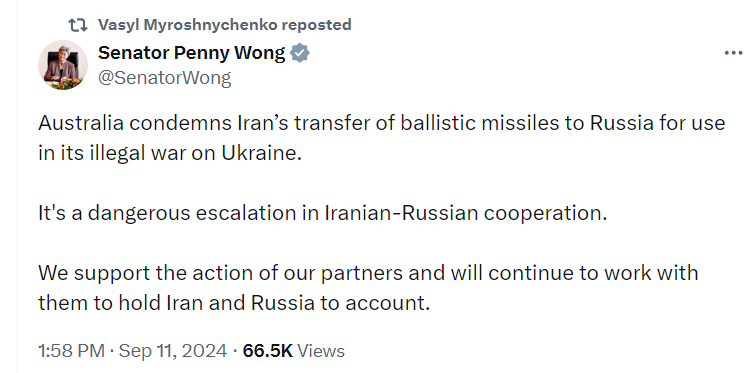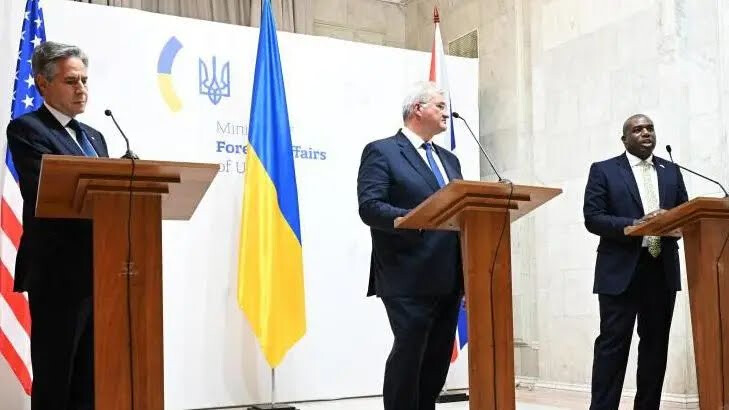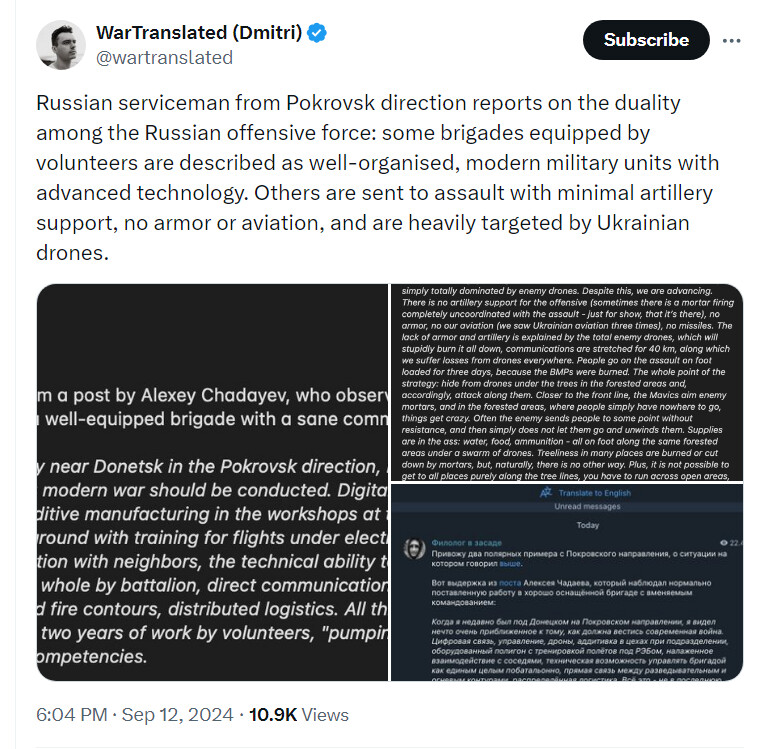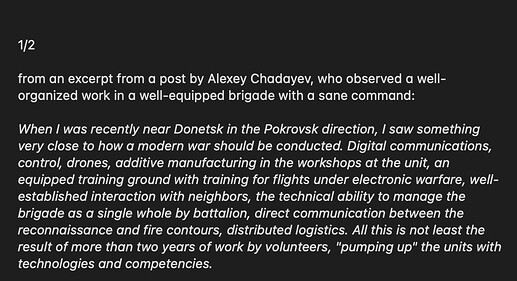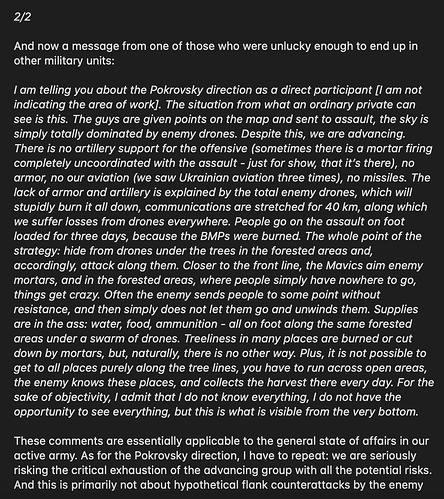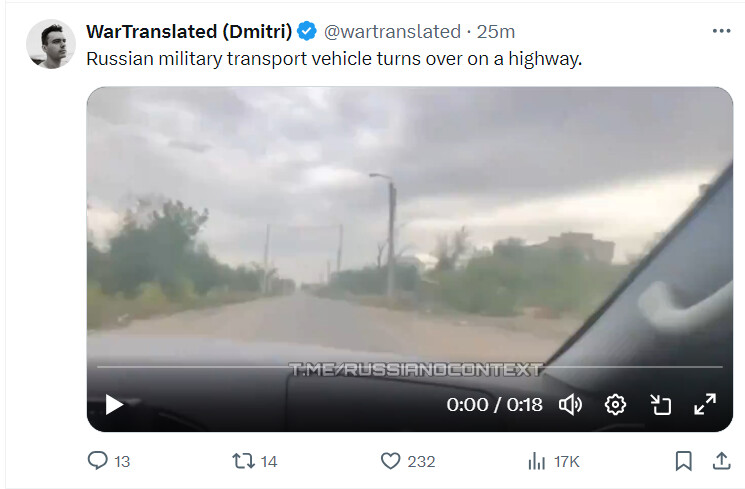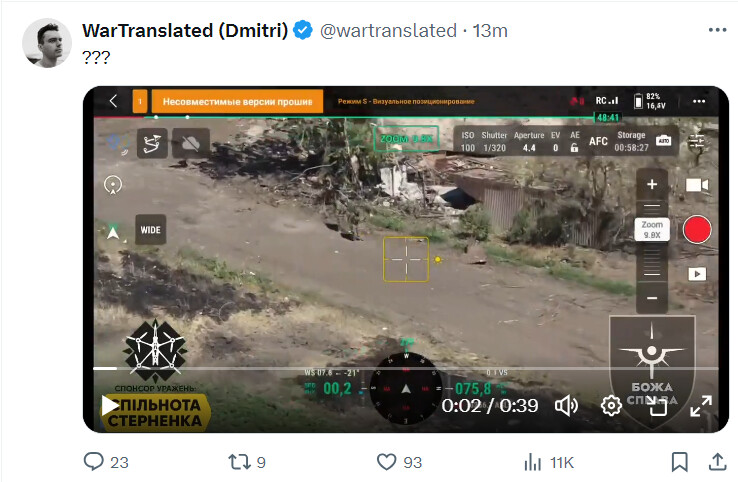There were significant loses of troops both sides in the border conflicts that began in 2014.
I know.
And I didn’t count them.
Nor have I included the approximate 73k private army participants that apparently are not counted in the figures to date.
It hit Ukraine harder, with its smaller pool and battle weariness
No doubt.
Unfortunately, there aren’t figures available to extrapolate a WW2 duration scenario for Ukraine.
Proportionally, I’m guessing it would be devastating. Especially as they appeared to be the ‘innocent nation’ invaded.
The Crisis Group Study of the conflict between 2014-3022 provides reliable estimates, but acknowledges gaps in data.
I read the report from the Ukrainian Special Unit that @barry_day posted above and note the last sentence “…a decision is expected to authorize the firing of Russian territory by missiles of partners…”
Gee, I hope that is true.
This should go over well with Putin.
North Korean Missiles Rain Down on Ukraine Despite Sanctions
Russia has received new shipments of Hwasong-11 short-range ballistic missiles, according to a new report.
Part of the tail section of a North Korean Hwasong-11 short-range ballistic missile examined by weapons investigators in Kyiv on Jan. 11.Credit…Courtesy of Conflict Armament Research
Sept. 11, 2024
North Korea has continued to supply advanced short-range ballistic missiles to Russia in defiance of sanctions meant to prevent Pyongyang from developing such weapons and Moscow from importing them, according to a report by a weapons research group.
Remnants of four of the missiles, which are called Hwasong-11, were examined in Kyiv by investigators from Conflict Armament Research, an independent group based in Britain that identifies and tracks weapons and ammunition used in wars around the world.
That team decoded production markings on several parts from each missile collected by Ukrainian authorities.
A Hwasong-11 missile used in an Aug. 18 attack on Kyiv had markings showing that it was made this year. Internal parts from three others, which were used in attacks in July and August, lacked markings that would indicate when they were manufactured.
The researchers released those findings in a report on Wednesday.
In early January, the White House accused North Korea of providing ballistic missiles to Russia, but subsequent shipments had not been previously reported.
The Hwasong-11 missile has a range of about 430 miles and can be fitted with nuclear or conventional warheads, according to a U.S. Army report. It is visually similar to the Russian Iskander short-range ballistic missile and may have been made with foreign assistance, according to the Center for Strategic and International Studies, a Washington think tank.
Remnants of a motor used to guide a North Korean Hwasong-11 short-range ballistic missile used in an attack on Ukraine on Aug. 6. Credit…Courtesy of Conflict Armament Research
“The determination of the production year that we were able to make in the field by looking at those remnants shows a very tight window between production, transfer and use,” Damien Spleeters, who leads Conflict Armament Research’s operations in Ukraine, said in an interview. “And I think that’s quite significant because we are talking about North Korea, a country that has been under sanction for almost two decades.”
“It also shows, because this is at least a second shipment, continued violation of the sanctions because they continue to produce those missiles, to transfer them and then those missiles are being used in Ukraine,” he said.
“It wasn’t a one-off in January,” Mr. Spleeters added.
In March, Russia used its veto power on the U.N. Security Council to end monitoring of North Korea’s efforts to evade sanctions on its nuclear program. The termination of monitors, Mr. Spleeters said, was a major reason the country has been able to continue building and transferring ordnance to Russia.
Weapons like the Russian Iskander and the North Korean Hwasong, which are fired from truck-based mobile launchers, are difficult to defend against because they fly much faster than other incoming threats like cruise missiles and can maneuver just before impact.
The United States and its allies have provided Patriot air defense systems to Ukraine to help the country fend off Russian attacks. But President Volodymyr Zelensky of Ukraine has said he needs more.
“Ukraine has limited air defense options to shoot down ballistic missiles like the Hwasong, and Patriots are the key weapon system for that,” Rob Lee, a senior fellow at the Foreign Policy Research Institute, said in an interview. “They only have a limited number of Patriot batteries and missiles, so Ukraine can only defend a few key areas, and the Russians can put cities at risk as well as targets on the front lines.”
North Korea is not the only country sending such weapons to Russia.
On Tuesday, Secretary of State Antony J. Blinken accused Iran of shipping short-range ballistic missiles to Russia for use in Ukraine. As a result, Mr. Blinken said, the Biden administration was imposing more sanctions against Tehran.
In August, the investigators reported that Russian forces were launching Kh-101 cruise missiles into Ukraine sometimes just weeks or months after the weapons left the factory.
The Hwasong missiles that were examined used common commercially available electronic components made by Western nations as recently as last year that ranged from the unsophisticated to fairly advanced, Mr. Spleeters said. They were similar to the components found in many Russian weapons examined by the group months into the 2022 invasion.
The finding should not be a surprise, Mr. Spleeters said, given that Russia has also been able to build advanced weapons while under international sanctions aimed at slowing their production.
“North Korea doesn’t have a domestic semiconductor industry,” he said. “So it makes sense that they would also take advantage of the global market to get access to those components.”
“This means that we also can trace them and identify the entities responsible for their diversion,” he added.
https://www.nytimes.com/2024/09/11/us/russia-north-korea-missiles-ukraine.html
What could possibly go wrong?
Russia Is ‘Handing Over’ Submarine and Missile Tech to China for Ukraine War Help
Bump!
You’re a legend @sweatyman
Harris’ suggestion that Poland could be next if Ukraine loses the war resonates with Poles
Updated 1:55 AM AWST, September 12, 2024
WARSAW, Poland (AP) — Wanda Kwiatkowska eagerly read reports on Wednesday morning about the U.S. presidential debate — and they convinced her that a second Trump presidency would be a grave threat to her home of Poland and the larger region.
Former President Donald Trump twice refused to directly answer a question during the debate about whether he wanted U.S. ally Ukraine to win the war. Meanwhile, Vice President Kamala Harris praised American and NATO support for Ukraine in its fight against Russia’s invasion so far — and called for it to continue.
“Otherwise, (Russian President Vladimir) Putin would be sitting in Kyiv with his eyes on the rest of Europe. Starting with Poland,” she said. “And why don’t you tell the 800,000 Polish Americans right here in Pennsylvania how quickly you would give up for the sake of favor and what you think is a friendship with what is known to be a dictator who would eat you for lunch?”
Harris’ emphasis on the need to stand up to Putin resonated Wednesday in Poland, a nation of 38 million people whose geography makes it particularly sensitive to the debate. The NATO member is wedged between its European Union partners to the west and, to the east, the Russian region of Kaliningrad, Russian ally Belarus and Ukraine.
Still no authorisation for military strikes with foreign supplied missiles into Russia, as far as I can ascertain. Britain appears more ready to give authorisation than the US. However, both Britain and America are apparently, still deliberating.
Iranian missiles to Russia change Ukraine debate - Lammy
US Secretary of State Antony Blinken (left) and UK Foreign Secretary David Lammy visited Kyiv on Wednesday
11 September 2024
The delivery of Iranian missiles to Russia has changed the debate about Ukraine using Western-provided long-range missiles against targets inside Russia, UK Foreign Secretary David Lammy has told the BBC on a visit to Kyiv.
Lammy travelled to the Ukrainian capital with US Secretary of State Antony Blinken after talks in London.
They met President Volodymr Zelensky, who has repeatedly called for allies to loosen limits on the use of Western-supplied weapons.
The US and UK have not given Ukraine permission to use long-range missiles against targets inside Russia for fear of escalation.
At a news conference in Kyiv on Wednesday, Blinken said US President Joe Biden would likely discuss the use of long-range missiles with UK Prime Minister Sir Keir Starmer at the White House on Friday.
Asked about the risk of escalation, the US secretary of state added: “We’ve now seen this action of Russia acquiring ballistic missiles from Iran, which will further empower their aggression in Ukraine. So if anyone is taking escalatory action, it would appear to be Mr Putin and Russia.”
Lammy would not be drawn into whether the US and UK would be allowing Ukraine to use long-range missiles, but said: “I am not prepared to give Putin the advantage.”
Biden has said his administration is considering lifting the restrictions, but no decision has yet been made public.
On Wednesday, Zelensky said Kyiv’s victory in the war against Russia “depends mostly on the support of the United States”.
Ukrainian Foreign Minister Andrii Sybiha said steps towards lifting long-range missile restrictions “are important in the context of reports of a possible transfer of ballistic missiles to Russia by Iran”.
“We must act boldly,” he added.
In an interview with the BBC, Lammy said Iran providing Russia with ballistic missiles “clearly changes the debate” as they would allow Moscow’s forces “to have further penetration into Ukraine”.
“That is very dangerous,” Lammy said, adding: “As we see the Russians working with their partners, we see this transfer of ballistic missiles from Iran to Russia, it is important that we do more to support Ukraine to win in their efforts.”
On Wednesday, Lammy said the UK would provide £600m ($780m) in aid to Ukraine to support the country’s “humanitarian, energy and stabilisation needs”. Blinken announced a further $700m in assistance to Ukraine, including funding for the energy sector and demining.
The new aid came after the US, UK, France and Germany imposed further sanctions on Iran for supplying Russia with ballistic missiles for use in Ukraine. The UK government summoned Iran’s top diplomat over the accusations.
Ukrainian Prime Minister Denys Shmyhal thanked Lammy for the UK’s military support for Ukraine throughout the war.
But he added: “We hope that long-range equipment for strikes on the territory of our enemy will be reached and we will have it and we hope for your help and support in this issue.”
Asked by reporters on Tuesday if the US would lift restrictions on Ukraine’s use of long-range weapons, President Biden said his administration was “working that out now”.
Earlier this year, the US loosened some of the restraints, allowing Ukraine to use long-range missiles to strike areas along Russia’s border where troops are firing from.
Kyiv’s other allies have also been supplying some long-range weapons - with restrictions on how and when they can be used inside Russia, out of concern such strikes could prompt retaliation that draws Nato countries into the war or provokes a nuclear conflict.
The Kremlin said on Wednesday that Russia would respond “appropriately” if the US were to allow Ukrainian missile strikes on its territory.
During a visit to the UK before travelling to Kyiv, Blinken accused Iran of supplying short-range ballistic missiles to Russia, saying they could be deployed against Ukrainians within weeks. Lammy described Iran’s move as "a significant and dangerous escalation”.
The missiles are likely to boost Russia’s arsenal, enabling it to hit Ukrainian cities close to Russia’s borders or areas it already controls at the same time as it deploys its longer-range missiles deeper into Ukrainian territory.
Iran’s Foreign Minister Abbas Araghchi denied his country was supplying missiles to Russia, accusing Western countries of “acting on faulty intelligence and flawed logic”.
The UK has given Ukraine Storm Shadow missiles, which have a range of about 250km (155 miles). So far, they have been used only against Russian targets in occupied Ukrainian territory.
But Ukrainian leaders say they need the missiles to target air bases used by Russian warplanes to launch devastating glide bombs against Ukraine. These weapons are often launched from deep inside Russian territory.
Vlad The Assailer might kick an ‘own goal’.
Putin wants to retaliate against Western sanctions with commodity export curbs — but Russia needs the money, too
Sep 12, 2024, 3:28 PM GMT+8
- Russian President Vladimir Putin is considering limiting strategic commodity exports to counter Western sanctions.
- Putin cited uranium, nickel, and titanium as some commodities his government can look into.
- However, Russia’s oil profits appear to be under pressure due to sanctions and increased breakeven prices.
Russian President Vladimir Putin wants to impose his own trade restrictions to retaliate against the West’s sanctions.
But there’s one issue: He still needs to fund the war in Ukraine and profits from oil exports are likely under pressure.
On Wednesday, Putin told his government to consider the export of strategic commodities, such as uranium, nickel, and titanium, according to state news agency TASS.
“They are restricting supplies of a number of goods to us. Well, maybe we should also impose certain restrictions?” Putin said.
However, any such limits should only be imposed if they do not “harm us,” said Putin, adding that he wasn’t saying he was expecting action “tomorrow.”
Russia is a commodities giant and a top exporter of the three metals Putin highlighted, so any disruption to supply could have serious global fallout.
Among other uses, uranium is used for nuclear energy generation, nickel is used in batteries, and titanium is used in aerospace manufacturing.
The US has already banned some Russian metal imports, including uranium.
Markets took note: Three-month nickel on the London Metal Exchange closed 2.5% higher on Wednesday, following Putin’s comments. Shares in uranium miners also jumped.
Russia imposed temporary export bans for over 200 products in March 2022, which it said was to “maintain stability” in its own market. It also introduced a temporary ban on gasoline exports from March this year to meet rising local demand.
Russia’s oil profits are likely under pressure
In addition to metals, commodities are a huge contributor to Russia’s bottom line.
The oil and gas industry accounts for 30% to 50% of federal budget revenue, the Oxford Institute for Energy Studies estimated.
Europe is weaning itself off of Russian fossil fuels. While Russia has managed to pivot to alternative markets, the commodities are often sold at huge discounts due to sanctions, according to an S&P Global report last month.
At the same time, Russia’s breakeven oil price has increased since the war started, according to S&P Global, which attributed the rise to conflict-related costs.
